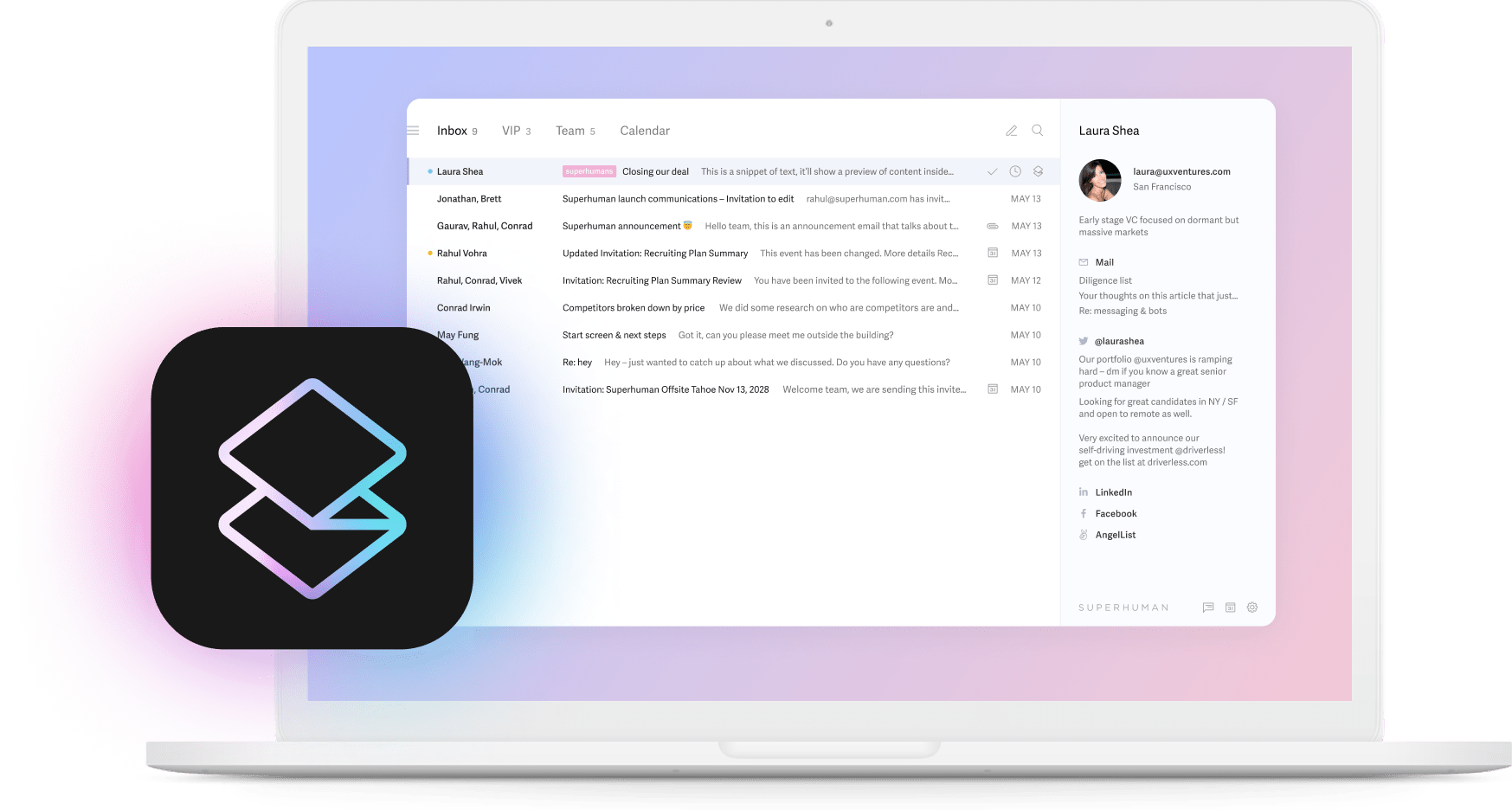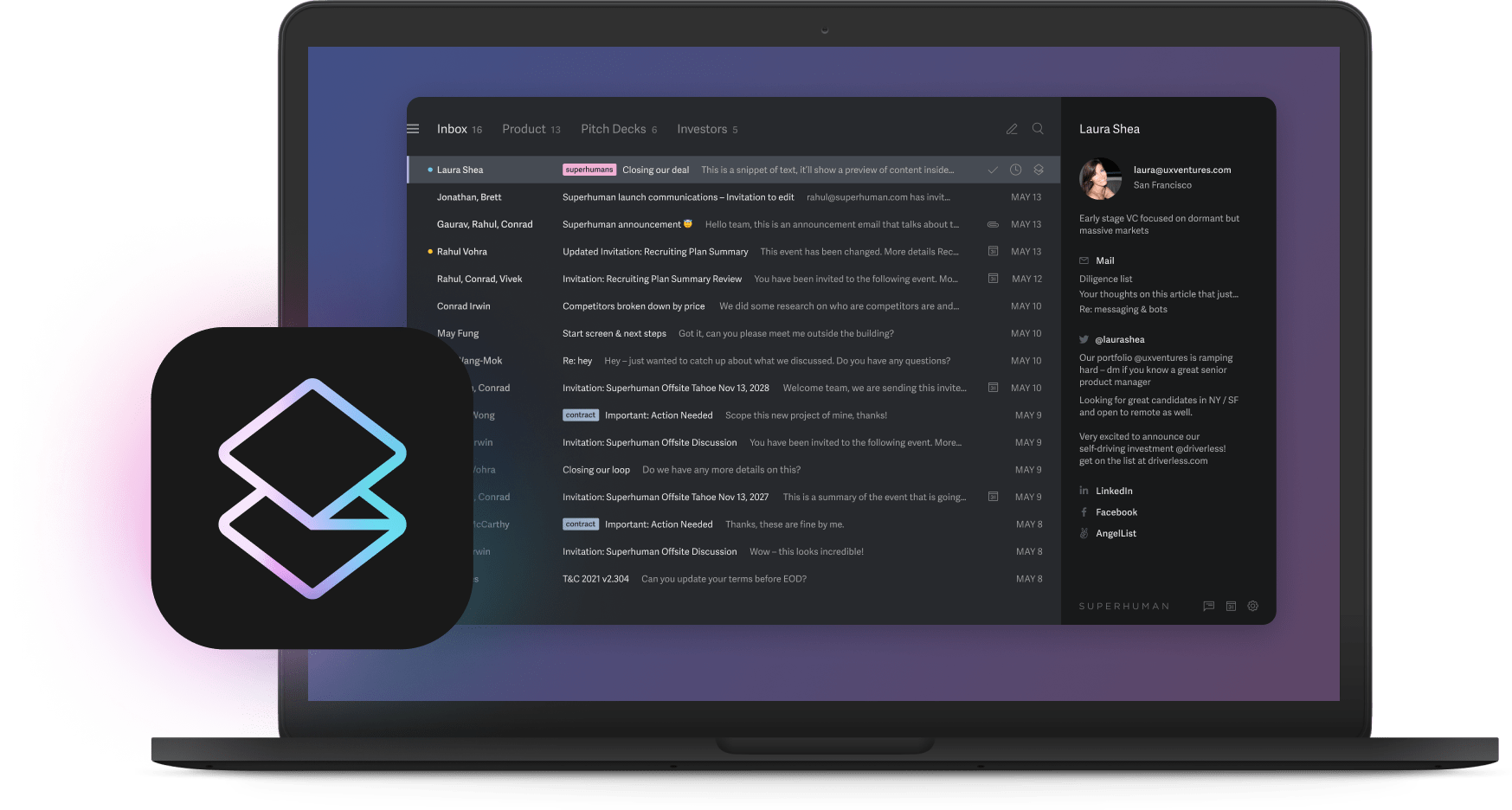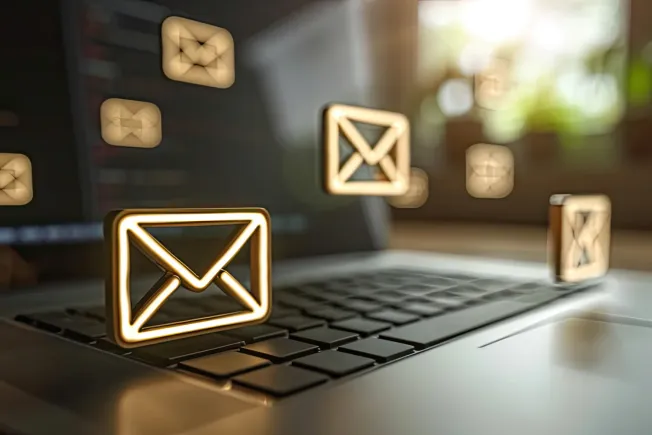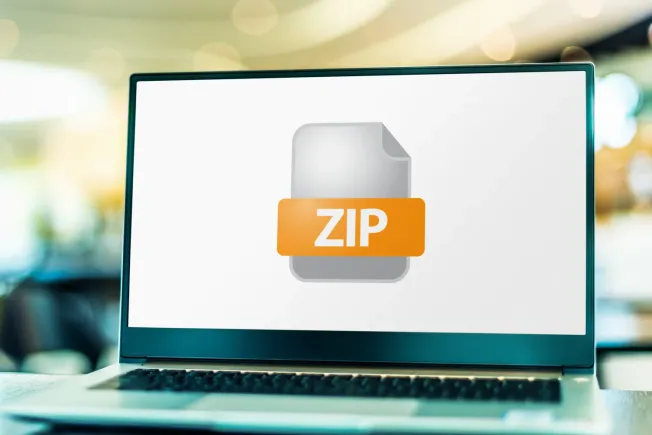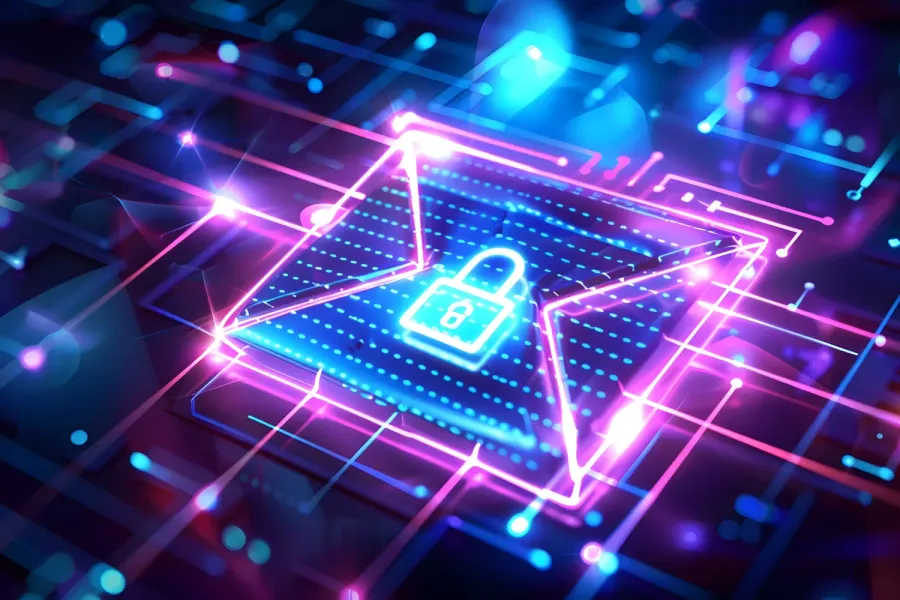
You're reading an email when you notice something off. The sender's address looks legitimate, but the urgency feels wrong. Click here immediately. Verify your account now. You delete it and move on, but the concern should be how many of these emails go unnoticed.
If you're not using a secure email provider, you will get multiple emails with malicious intent because email is the most vulnerable attack vector in digital communication. 1 in 4 emails is either malicious or unwanted spam. Phishing attacks have also surged since AI tools made it easier to craft convincing scams.
Since the threat is never going away, you need a secure email solution that fits your specific needs. This article explores eight top email providers and their different approaches to security—from privacy-focused encryption to enterprise-grade threat protection.
The benefits of secure email providers
Secure email providers do more than block phishing attempts. They rebuild email architecture to eliminate vulnerabilities that traditional services leave exposed.
Protection from data breaches
Traditional email services store your messages in readable format on their servers. If hackers break in, they get everything. Secure email providers use end-to-end encryption, rendering intercepted messages meaningless to unauthorized parties.
When over 71 million user emails were exposed in the 2023 Naz.API breach, personal conversations, financial details, and business communications were suddenly accessible to cybercriminals. Similar breaches at encrypted providers would yield only worthless ciphertext. The architecture fundamentally prevents access to user data, even when attackers compromise the infrastructure.
Shield from surveillance
Government surveillance operates at a massive scale. Under Section 702 of the Foreign Intelligence Surveillance Act, U.S. intelligence agencies conducted up to 3.4 million searches involving U.S. person data in a single year, according to a 2021 report.
Secure email providers like Proton Mail and Tuta implement zero-knowledge encryption that makes surveillance technically impossible. They can't access your communications even if legally compelled. Your privacy remains intact regardless of political changes or legal demands.
Enhanced peace of mind
Secure providers operate on models that align their interests with your privacy and security. Traditional services monetize your data through advertising and behavioral analysis, creating inherent conflicts between privacy and profit.
This matters for executives discussing sensitive business strategies, healthcare providers communicating patient information, and legal professionals maintaining attorney-client privilege. When communications are protected through robust security architecture, you can communicate openly without worrying about unauthorized access.
Understanding different security approaches
Before diving into specific providers, it's important to understand that "secure email" isn't one-size-fits-all. Providers take two primary approaches:
Privacy-first encryption providers (like Proton Mail, Tuta, Mailfence) focus on zero-knowledge architecture and end-to-end encryption. They're ideal when you need maximum privacy protection and communication with other encrypted email users. The tradeoff is often limited integration with business tools and workflows.
Enterprise-grade security providers (like Superhuman Mail) prioritize comprehensive threat detection, authentication protocols, and security that integrates with existing business infrastructure. They excel at protecting teams from sophisticated attacks while maintaining productivity. The focus is on preventing threats rather than hiding data from the provider itself.
The best choice depends on your specific threat model and needs.
Top 8 secure email providers
Your inbox deserves better protection. Email threats have exploded in complexity, but these eight providers deliver robust security through different approaches. Each offers unique advantages to help you communicate with confidence.
Superhuman Mail
Superhuman Mail delivers enterprise-grade security designed for high-performing teams who refuse to compromise between protection and productivity. Unlike privacy-focused providers that require recipients to also use encrypted email, Superhuman provides comprehensive security that works with your existing email infrastructure.
The platform combines advanced threat detection, email authentication protocols (SPF, DKIM, DMARC), and sandboxing technology that analyzes suspicious attachments in isolated environments before they reach your inbox. Modern machine learning identifies phishing attempts and social engineering tactics in real-time.
Key features:
- Comprehensive email authentication preventing spoofing and domain impersonation
- Advanced threat detection blocking sophisticated attacks before inbox delivery
- Link rewriting and time-of-click analysis protecting against evolving threats
- AI-native tools that draft emails, summarize threads, and organize priority communications
- Split Inbox automatically organizing security-critical messages
- Read Statuses for transparency on time-sensitive secure communications
- Shared Conversations enabling secure team collaboration within threads
Best for: Teams and professionals who need enterprise-grade security without sacrificing the speed and efficiency required for modern business communication. Superhuman's security infrastructure works seamlessly with Gmail and Outlook, protecting your existing workflow rather than requiring a complete platform change.
Pricing:
- Starter: $25/month
- Business: $33/month
- Enterprise: Contact for pricing
Proton Mail
Proton Mail stands as the most prominent privacy-focused secure email provider, operating from Switzerland's privacy-friendly jurisdiction outside the Five Eyes intelligence-sharing network. The service implements automatic end-to-end and zero-access encryption using AES-256, meeting the world's strictest compliance standards including CMMC, ITAR, and CJIS requirements.
Key features:
- Zero-access encryption that prevents even Proton employees from reading messages
- Anonymous sign-up without personal information
- Self-destruct timers for temporary communications
- Hardware security key support for phishing-resistant authentication
- Open-source code audited by independent security researchers
Best for: Individuals and organizations prioritizing maximum privacy protection, especially when communicating with other Proton Mail users or those willing to use password-protected messages.
Pricing: Free plan available; paid plans start at €9.99/month
Tutanota (Tuta)
Tuta distinguishes itself through comprehensive encryption extending beyond message content to subject lines, calendars, and contacts. Based in Germany under strict EU privacy laws, Tuta was the first major email provider to deploy quantum-resistant encryption by default through TutaCrypt.
Key features:
- Post-quantum cryptography protecting against future threats
- Automatic IP address encryption and deletion after one week
- Anonymous account creation
- Zero-logs policy with green energy operations
- Open-source frontend for community security review
Best for: Privacy-conscious users concerned about long-term data security and future quantum computing threats.
Pricing: Free plan available; paid plans start at €3.60/month
Mailfence
Mailfence operates from Belgium, providing transparency advantages through location in a country without equivalent laws to US National Security Letters. The service emphasizes OpenPGP standards for email authentication and interoperability with other secure providers.
Key features:
- End-to-end encryption using OpenPGP standards
- Digital signatures for message authenticity
- Integrated encrypted calendar and document collaboration
- No tracking or logging of user behavior
- GDPR compliant with Belgian jurisdiction protections
Best for: Users who need encrypted collaboration tools alongside secure email and value OpenPGP interoperability.
Pricing: Free plan available; paid plans start at $2.50/month
StartMail
StartMail comes from the creators of StartPage, the privacy-focused search engine. Operating from the Netherlands with strict EU privacy protections, StartMail offers unlimited disposable email addresses for enhanced privacy.
Key features:
- PGP encryption for secure communications
- Unlimited disposable addresses to protect identity
- Two-factor authentication for account security
- No ads, tracking, or profiling
- Custom domain support for businesses
Best for: Privacy advocates who want unlimited alias addresses and integration with the StartPage privacy ecosystem.
Pricing: 7-day free trial; $6.99/month
CounterMail
CounterMail focuses on diskless web servers and strong encryption protocols. Based in Sweden, the service stores all data on CD-ROM servers that can't be modified or infected with viruses.
Key features:
- 4096-bit RSA and 256-bit AES encryption
- Diskless servers for enhanced security
- USB key authentication option
- Anonymous email headers
- Secure forms for password-free logins
Best for: Security professionals and individuals who prioritize technical security features and unique server infrastructure.
Pricing: $29/year for basic plan
Posteo
Posteo operates from Germany with a focus on sustainability and privacy. The service accepts anonymous payment methods and doesn't require personal information during sign-up.
Key features:
- OpenPGP encryption for emails and contacts
- Anonymous payment via cash or cryptocurrency
- Powered by 100% renewable energy
- No logging of IP addresses
- Integrated calendar and cloud storage
Best for: Environmentally conscious users seeking affordable privacy protection with anonymous payment options.
Pricing: €1/month
Runbox
Runbox offers secure email hosting from Norway with a focus on privacy and sustainability. The service provides extensive storage and domain hosting capabilities for individuals and businesses.
Key features:
- OpenPGP encryption support
- Extensive storage options (up to 25GB)
- Custom domain hosting
- Powered by renewable energy
- Two-factor authentication
Best for: Users needing generous storage capacity and domain hosting alongside privacy protection.
Pricing: Plans start at $1.40/month
Important security features to look for
When evaluating secure email providers, these features determine real protection versus marketing claims.
End-to-end encryption
End-to-end encryption ensures only you and your intended recipient can read messages. The email provider can't access content even if they wanted to. Look for providers using AES-256 or similar military-grade encryption standards.
Zero-knowledge architecture takes this further by ensuring providers don't possess encryption keys. They literally cannot decrypt your data, regardless of legal demands or technical compromises.
Spam and malware filtering
Advanced threat detection blocks sophisticated attacks before they reach your inbox. Modern systems use machine learning to identify phishing attempts, malware attachments, and social engineering tactics.
Sandboxing
Email sandboxing analyzes suspicious attachments in isolated virtual environments before they reach your inbox. This technology catches zero-day threats and sophisticated malware that signature-based detection might miss.
Advanced systems provide time-of-click analysis, blocking links that become malicious after emails are delivered.
Attachment inspection
Comprehensive attachment analysis examines actual file contents for malicious code, suspicious patterns, and hidden threats. Modern systems use YARA rule libraries, computer vision for identifying embedded QR codes, and behavioral analysis identifying ransomware characteristics.
Link rewriting
URL rewriting analyzes all links before you can access them, providing protection against phishing sites and malware distribution. Real-time analysis detects newly created malicious websites that traditional blacklists wouldn't include.
Secure storage
Encrypted storage protects email content both on provider servers and in backup systems. Client-side encryption means data is encrypted on your device before transmission, with providers managing only encrypted data they can't decrypt.
Two-factor authentication
Multi-factor authentication blocks over 99.9% of account compromise attempts. Look for providers supporting hardware security keys using FIDO2/WebAuthn standards, which provide phishing-resistant authentication that can't be intercepted.
DMARC
Domain-based Message Authentication, Reporting and Conformance combines SPF and DKIM protocols to provide sender verification and anti-spoofing protection. This prevents attackers from sending emails appearing to come from legitimate domains.
Choosing the right secure email provider
The best secure email provider depends on your specific needs:
Choose enterprise-grade providers (Superhuman Mail) if you:
- Need to protect business communications while maintaining productivity
- Want security that works with your existing email infrastructure (Gmail, Outlook)
- Require comprehensive threat detection and real-time protection
- Need team collaboration features alongside security
- Value efficiency and can't afford the workflow disruption of switching platforms
Choose privacy-focused providers (Proton Mail, Tuta, Mailfence, StartMail, CounterMail, Posteo, Runbox) if you:
- Need maximum privacy from all parties, including the provider
- Communicate primarily with other users of encrypted email
- Prioritize anonymous communication and zero-knowledge architecture
- Don't require deep integration with business productivity tools
Many organizations use both approaches: privacy-focused providers for the most sensitive personal communications, and enterprise-grade solutions like Superhuman Mail for daily business email that needs both security and speed .
Ready to fly through your inbox while maintaining enterprise-grade security? Get Superhuman Mail today.
